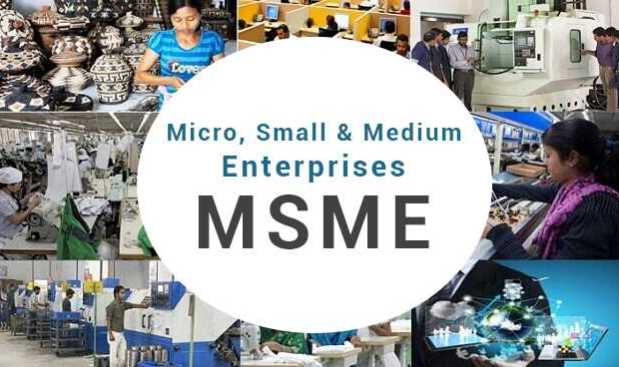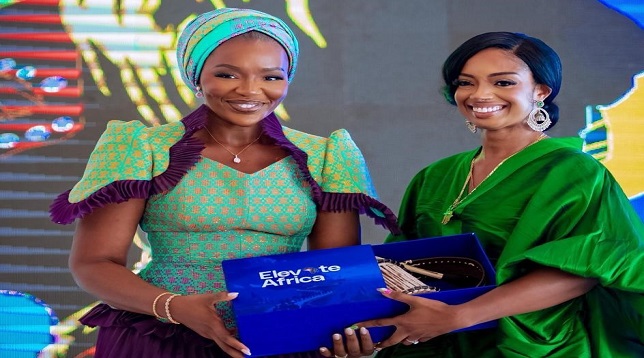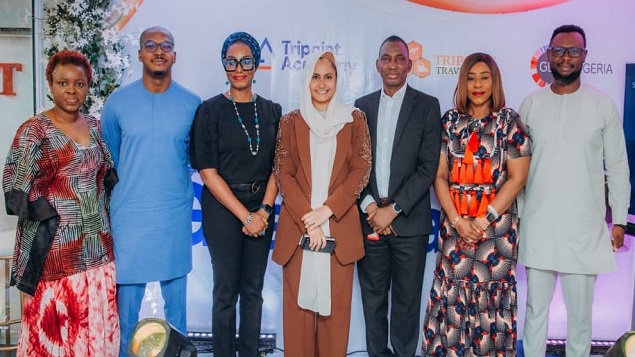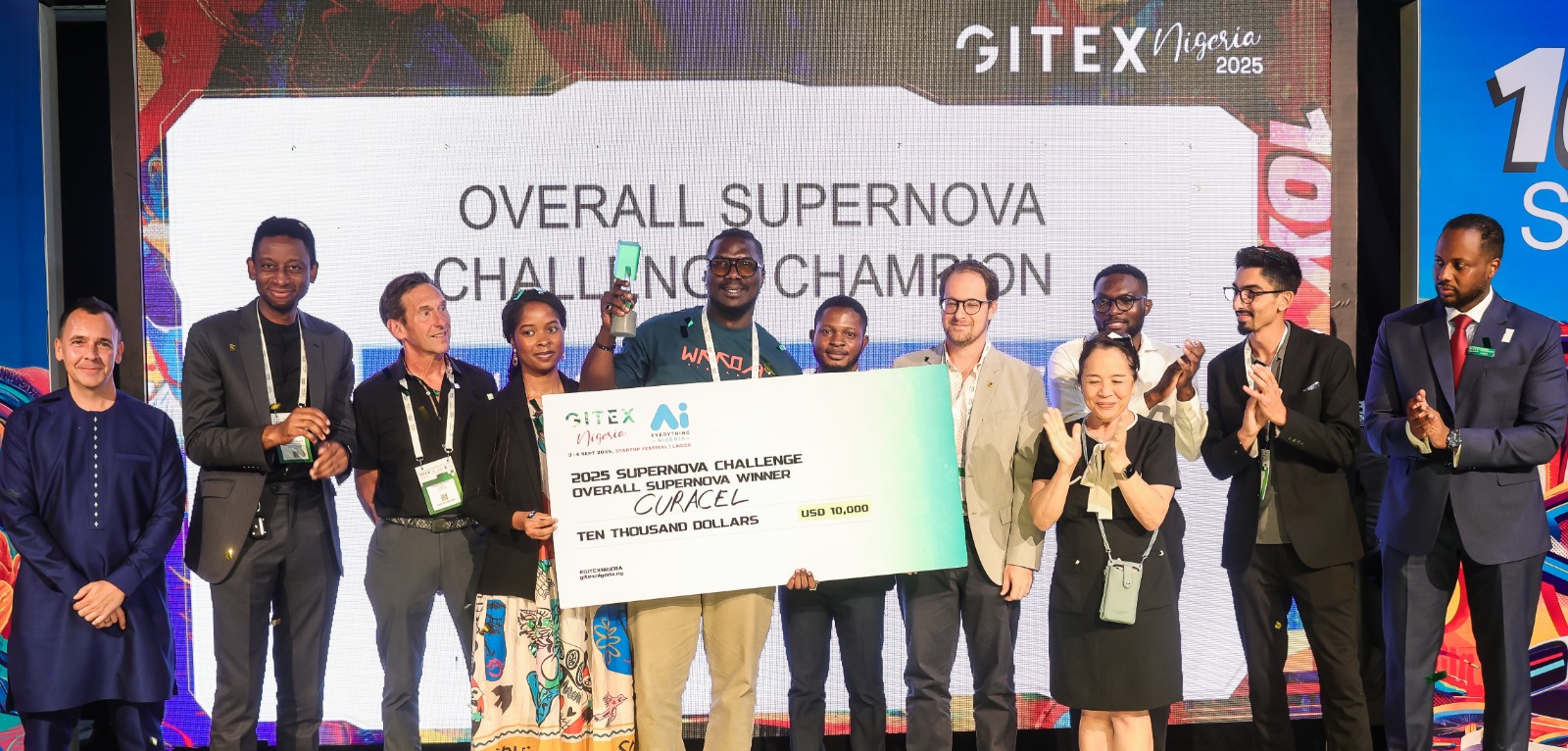General News
IFC Announces New Projects to Support MSMEs Through the Alliance for Entrepreneurship in Africa

IFC has announced four new projects to support micro, small, and medium-sized enterprises (MSMEs) in Africa and globally. The projects will help businesses address food insecurity across the continent and trade financing gaps and will support increased agricultural productivity and efficiency.

Announced at an event held by the Alliance for Entrepreneurship in Africa on the sidelines of the Summit for a New Global Financing Pact in Paris, France, the projects underscore IFC’s commitment to supporting smaller businesses, job creation, and private sector development.
The new projects announced by IFC include:
The MSME Finance Program: This multi-year initiative will provide up to $5 billion in financing to create increased capital and to mobilize financial markets as greater sources of development finance globally.
Specifically, the program will increase lending to women entrepreneurs, MSMEs contributing to food security, first-time MSME borrowers and MSMEs in vulnerable regions affected by climate change. It will support MSMEs in fragile and conflict-affected situations as well as those in Middle-Income Countries (MICs). Through the program, IFC will earmark $250 million to fund the resilience and protection of MSMEs in small island nations.
The Africa Agriculture Accelerator Program: An estimated 140 million people in Africa face food insecurity and despite an abundance of natural resources and arable land, the continent imports $35 billion in food each year.
This Alliance for Entrepreneurship in Africa initiative will provide financing to agribusiness companies to support their growth and expansion and ultimately foster more local food production and contribute to greater food security.
The program will help agribusinesses to access finance, improve productivity, and increase competitiveness in local and international markets. Through the program, IFC will finance up to $1 billon and reach up to one million hectares of land over the next three years.
EBRD Pilot Start-Up Project: Announced in partnership with EBRD, one of the Alliance’s seven core members, the Pilot Start-up Project will facilitate increased capacity building, mentoring, networking, and funding for early-stage enterprises, incubators, accelerators, and seed funds in North Africa.
Risk Distribution Partnership: A joint Alliance initiative between IFC and Proparco, the partnership will help facilitate greater access to sustainable trade finance for emerging African markets and develop deeper intra-Africa trade.
In Africa, trade costs can be as high as 300 percent of the value of the merchandise being traded. Through the partnership, Proparco will participate for up to $500 million in IFC’s Global Trade Finance Program (GTFP).
“We are pleased to announce these new projects as part of our ongoing commitment to support MSMEs, including through the Alliance for Entrepreneurship in Africa. These initiatives will help to increase access to finance, improve productivity, and build resilience for MSMEs, which are critical for economic growth and job creation,” said IFC’s Managing Director Makhtar Diop.
General News
Queen Simone Speaks on Economic Empowerment @ Women Allying Women Conference 2025

HM Queen Wa Arian Simone, CEO of the Fearless Fund and founder of Fearless Freedom, joined women leaders at the Women Allying Women (WAW) Conference on Thursday last week in Cape Coast.

The annual gathering, convened by Her Royal Majesty Olori Atuwatse III (Queen Consort, Warri Kingdom, Nigeria), carried the theme “Collective Power, Lasting Impact: Women Leading Ghana’s Sustainable Transformation.”
She participated in a panel session “From the Crown to the Boardroom: Transgenerational Wisdom for Ghana’s Transformation,” alongside eminent women leaders who shared perspectives on how tradition, governance, and intergenerational wisdom can shape the future of Ghana and Africa at large.
“As an African Queen committed to women’s empowerment and fair access to capital, being part of Women Allying Women is not only purposeful, but it is also a divine alignment. This is more than a gathering; it is a diasporic and royal bridge rooted in legacy and destiny. I count it a privilege to do God’s work in the earth, together and in fellowship,” said HM Queen Wa Arian Simone, expressing her delight at being part of the conference
The conference featured an exceptional lineup of women leaders, including Ambassador Elsie Appau-Ku Essi, Technical Adviser at the Ministry of Foreign Affairs and Regional Integration, Ghana; Mrs. Maame Efua Houadjeto, CEO of Ehub Ghana; Ms. Hayat Asckhar, lawyer and Managing Partner at Ethereal Limited; Mrs. Baaba Ankrah, CEO of GIBS Café; Petra Aba Asamoah, General Manager at Media General Ghana; Angela Bamford, media personality and entrepreneur; Ms. Arabba Koomson, journalist and life coach; and Stephanie Busari, journalist and CNN Bureau Head, Lagos.
HM Queen Arian Simone’s participation reaffirms Fearless Freedom’s global mission to stop economic inequality and support economic freedom, champion financial inclusion, amplify voices and opportunities for all across the continent and beyond.
General News
Tripoint Travels Launches Internship Programme to Tackle Youth Unemployment

Tripoint Travels has taken the bold first step in addressing one of Nigeria’s most pressing challenges: Youth unemployment, unemployability and underemployment. Through its newly launched Tripoint Academy Internship Programme, the organisation is pioneering a model that trains young Nigerians to be truly employable, while also offering them real job opportunities.

The first cohort of the six-month programme graduated this weekend in Lagos. Out of seven interns, three have already been offered jobs at Tripoint Travels, while partner organisations are considering others.
Mrs Shuhda Muhammed, Managing Director of Tripoint Travels and founder of Tripoint Academy, described the programme as a prototype designed to prove that Nigerian Youths, when given the right skills and guidance, can become assets to any industry.
“I came to the realisation, being an entrepreneur myself and running Tripoint Travels, that we need to have good employees. What that means is, we need intrapreneurs in our organisations for us to be able to grow, scale up and thrive in any industry. And one of the challenges we’ve been facing as entrepreneurs is employment, employability, because most of the youths out there are already educated.” She said.
The MD of Tripoint Travels has referred to this programme as more than an internship – but as the start of a movement. Mrs Muhammed hopes to see more organisations adopt this model and has urged them to grow talents to grow a workforce of employable young Nigerians who are ready to stay, work and thrive in Nigeria.
The Tripoint Academy Internship Programme combines hands-on business training with personal development, designed to turn graduates into Intrapreneurs who bring creativity, responsibility and growth mindsets into the workplace.
Industry stakeholders lauded the initiative. Dr. Olawale Anifowose, Managing Director of the Global Entrepreneurship Network (Nigeria), praised Tripoint’s bold step; he said that “Tripoint Travels has confronted one of the biggest challenges businesses face, which is talent management and finding the right people to work within their company. By equipping young people with practical skills, they are setting an example other organisations should follow”.
One of the graduates, Taiwo Fapohunda, echoed the impact of the programme, and said, “ It has been an eye-opener that has shifted me to become a better person. With the skills and confidence I have gained, I know I can grow and contribute meaningfully in the world of aviation and beyond”
Tripoint Travels is calling on entrepreneurs, organisations and institutions to replicate this model, scale it up and help curb unemployment across the country.
“This is just the beginning”, Mrs Muhammed added. “This is the first trial, and it came out amazing. We’ve shown that it can work, now imagine the impact on the economy if a greater number of organisations across Nigeria can adopt this approach”
General News
Nigerian Entrepreneurs Are the Architects of the Digital Future, Says Lagos Deputy Governor at GITEX Nigeria 2025

The inaugural GITEX NIGERIA concluded in a tremendous fashion this Thursday in Lagos, as West Africa’s largest tech, AI, and startup show cast a spotlight on the influence of emerging local and regional entrepreneurs.

Held under the patronage of H.E. Bola Ahmed Tinubu GCFR, President of the Federal Republic of Nigeria, GITEX NIGERIA took place across Abuja and Lagos from 1-4 September. Supported by the Federal Ministry of Communications, Innovation and Digital Economy with the National Information Technology Development Agency (NITDA), the event was endorsed by Lagos State Government and organised by KAOUN International, global producer of GITEX events.
Taking place in Nigeria’s commercial and innovation capital, the GITEX NIGERIA Startup Festival showcased the strength and depth of an ecosystem through which talent development pathways and digital infrastructure projects are accelerating Nigeria’s US$1 trillion economy ambition.
Deputy Governor of Lagos State, H.E. Dr. Kadri Obafemi Hamzat, hailed its immediate impact at the national level, declaring: “GITEX NIGERIA sends an inspirational message to every Nigerian: that many positive things are transpiring across our country and opportunities are here. For every attendee at the GITEX NIGERIA Startup Festival, this has been immediately apparent.
“We see many young citizens and entrepreneurs, with enormous innovative minds, making a real difference – generating interest, raising capital, and overcoming challenges by bringing their ideas to life and delivering tangible impact. Such outcomes are crucial because they show that, as the world evolves, so too does Nigeria – as a nation of leaders, innovators, and architects of digital future we envisage.”
Central to Nigeria – and Africa’s – digital sovereignty is upskilling and expanding grassroots talent and organisations. As the largest regional showcase of its kind and a convergence point for local and international stakeholders embracing digital transformation, the GITEX NIGERIA Startup Festival was perfectly timed to support this mandate.
Over 650 startups from 27+ countries and 29 different industries participated with a shared vision of co-creating tech architecture across multiple sectors undergoing continent-wide digitisation. Its strategic programme included Nigeria’s most globally diverse investor programme, innovation hub showcases, and curated meetings between startups, investors, corporates, governments, industry leaders, and prospective partners.
Speaking after the recent announcement of funding 75 new research projects for startups, researchers, corporates and Nigerian diaspora for digital innovation, the Hon. Bosun Tijani, Minister of Communications, Innovation and Digital Economy of the Federal Republic of Nigeria said: “The opportunity and responsibility lies with all of us to build a resilient, innovative, and globally connected ecosystem, one that ensures that Nigeria not only keeps pace with the digital future but also shapes it. To all enterprises, corporates, startups, academia, and partners, we offer a transparent and accelerated path to collaboration, investment, and cooperation with Nigeria. Let us accelerate the development of the digital economy not only for Nigeria, but for Africa and the world.”
Supporting the multi-sector disruption ranging from education and agriculture through manufacturing and energy, startup participation was bolstered by hundreds of organisations brought by local engagement and international innovation hub partnerships.
Within Nigeria, NITDA, Lagos State, FATE Foundation, Co-creation Hub Africa (CcHUB), and Orange Corners were among the partners, while internationally, the United Nations Development Programme (UNDP), American Business Council (ABC) contributed.
Mr. Kashifu Inuwa Abdullahi, Director General/CEO, NITDA, said: “Across Africa and around the globe, future-oriented partnerships are the lifeblood of thriving startup ecosystems and digital economies. By uniting ambitious organisations from instrumental sectors in the emerging digital economy, we demonstrate how collaboration fuels innovation, accelerates transformation, and empowers Nigerians and Africans to shape their digital future.”
Universally recognised as the world’s leading pitch competition for early-stage companies and emerging entrepreneurs, the Supernova Challenge made its regional debut at West Africa’s largest tech, AI, and startup show – culminating in action-packed Thursday final.
Across two days in Nigeria’s innovation capital, the continent’s brightest and boldest disruptors joined Nigeria’s most visionary startups in competing for a US$22,000 total prize pool across six categories – showcasing game-changing solutions transforming agritech, cybersecurity, edtech, e-commerce, healthtech, telecom, and more.
Following the semi-finals 24 hours prior, the remaining contestants battled it out for valuable cash prizes and unprecedented visibility as regional and international investors watched on.
Abdul-Jabbar Momoh, VP, from Nigerian startup Curacel – revolutionising health insurance with AI-driven solutions – emerged as the most outstanding finalist among the expert judging panel and was awarded the US$10,000 first prize for its AI-driven health insurance solution.
Reflecting on the at GITEX NIGERIA, Momoh said: “Placing first at the GITEX NIGERIA Supernova Challenge gives us more visibility and fuel our expansion across Europe, Middle East and Africa, as well as North America. Most importantly we are going to keep on impacting lives in Africa and around the world by deploying solutions to move health insurance distribution.”
The winners across each Supernova Challenge category were as follows:
- Overall Supernova Champion (US$10,000): Curacel
- AI category (US$2,000): Build Africa
- Digital Finance category (US$2,000): InCash
- Creative Economy & Martech (US$2,000): Hadiya
- Agritech & Energy (US$2,000): Acecore
- Mobility & Smart Cities (US$2,000): Kara
- Disruptor Award (US$2,000): HiPrep
For more information, news and updates on GITEX NIGERIA, please visit gitexnigeria.ng.

 Telecom3 days ago
Telecom3 days agoMTN to Shut Down 2G, 3G Services in Ghana

 News3 days ago
News3 days agoZinox, KongaCares Launch 1m Laptop Drive to Transform Nigerian Schools

 E-Business3 days ago
E-Business3 days agoFirm Warns of a New Credential-stealing Campaign via Facebook

 E-Financial3 days ago
E-Financial3 days agoNOA Urges Nigerians to Reclaim N190Bn Unclaimed Dividends

 News3 days ago
News3 days agoTUC Labels 5 Percent Tax on Petroleum Products ‘Economic Wickedness’, Threatens Strike

 E-Financial3 days ago
E-Financial3 days agoPalmPay Champions Trust, Local Partnerships at GITEX Nigeria 2025

 General News3 days ago
General News3 days agoAfrinvest Marks 30 Years, to Unveil 20th Banking Sector Report

 General News3 days ago
General News3 days agoKeyamo Orders NCAA to Name, Shame Airlines over Breach of Aviation Rules
















